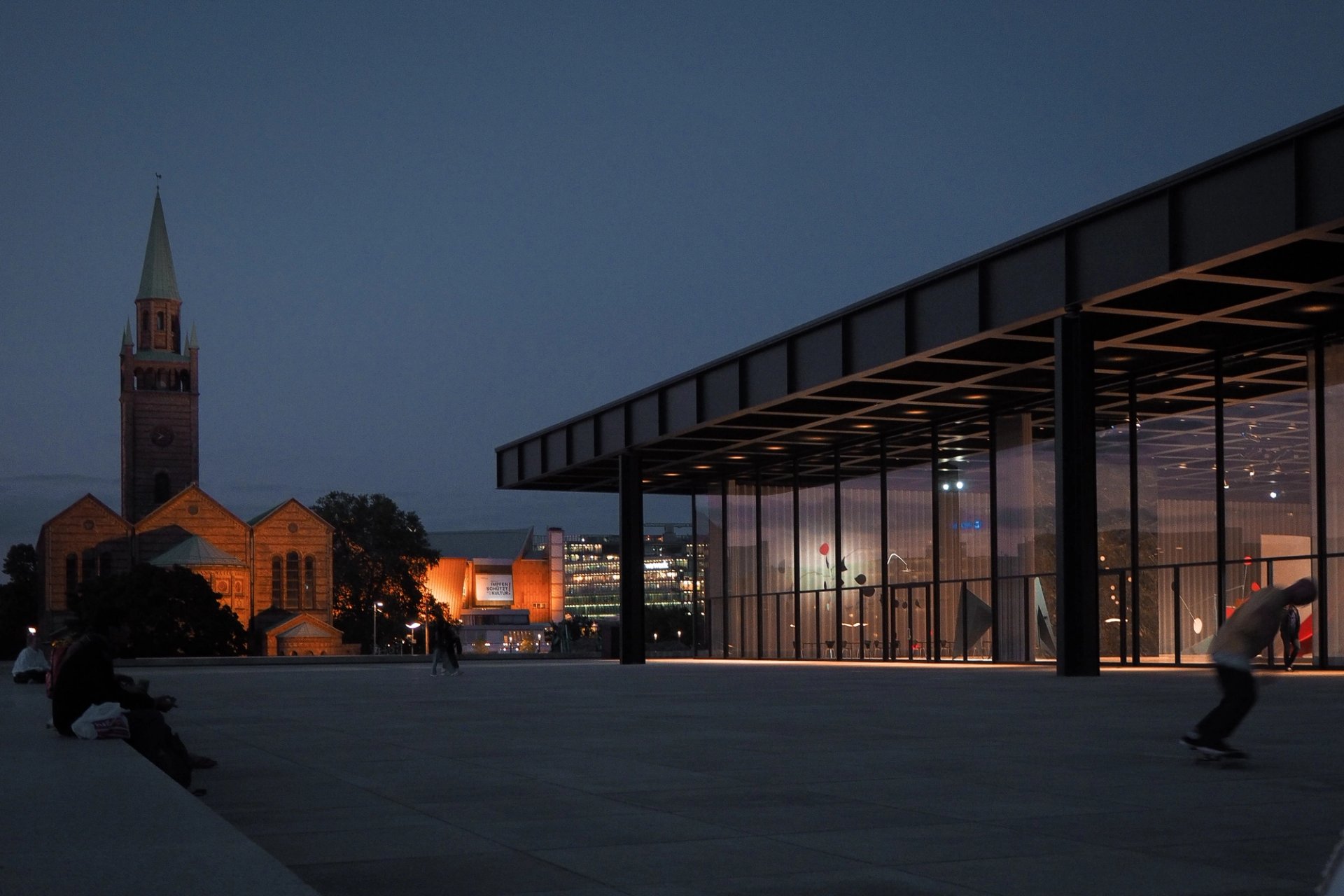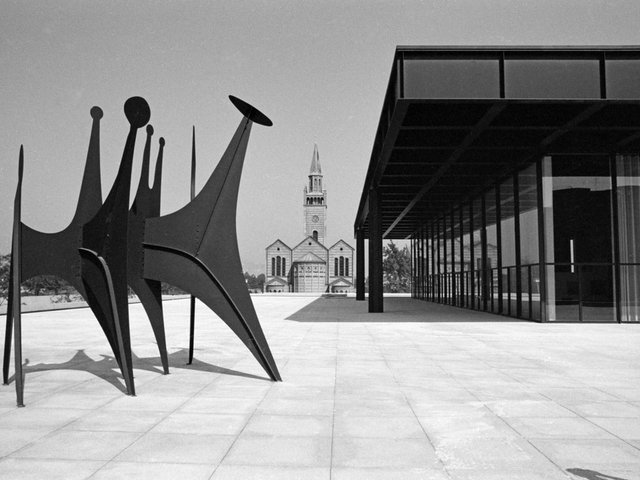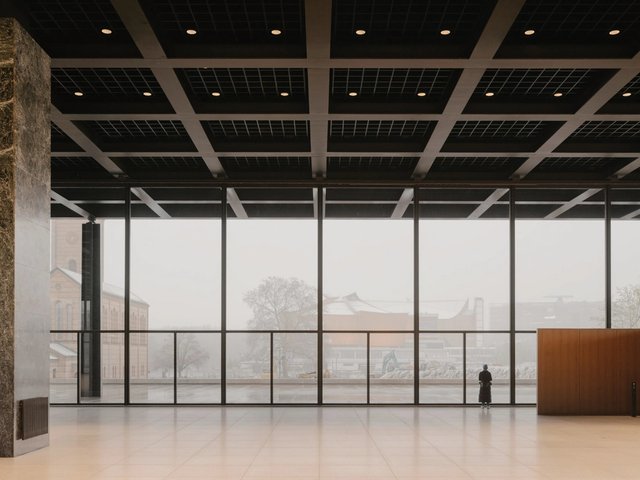Berlin’s skateboarding community has started a petition in protest against a newly imposed ban on their sport in the area surrounding the Neue Nationalgalerie, which reopened in August after a six-year closure for renovation.
Ludwig Mies van der Rohe’s steel-and-glass masterpiece sits atop a paved terrace that has long been popular with skateboarders. During construction work, it was not accessible to the public. After the museum’s reopening, the skaters returned in force. The Berlin museum authorities banned them from the site from 22 October.

The steps of the Neue Nationalgalerie are a popular skateboarding spot © Lawrence Chismorie
Joachim Jäger, the director of the Neue Nationalgalerie, says the ban was essential to protect the building and sculptures by Robert Indiana, Alexander Calder, Richard Serra and Henry Moore on the terrace. Their plinths have already suffered scratch marks from wheels, as has the building, he says.
“The Neue Nationalgalerie is admired for its precision and perfection,” Jäger says. “We want to talk to the skaters to find a way to keep the building in good condition and keep the skating.”
The gently worded petition, signed by 2,500 people, calls for “the preservation of the skate culture at the Neue Nationalgalerie” and an agreement with the museum authorities that would allow skateboarders on the site “at least when the museum is closed.”
It points out that other cultural institutions, such as the Macba museum of contemporary art in Barcelona and the Casa de Musica concert hall in Porto, Portugal, have welcomed skateboarders to their sites.
Jäger says he hopes to find a solution that allows “the coexistence of different groups on the terrace.” Elderly visitors may find the skateboarders whizzing around them alarming, he says. The museum had considered hiring a guard to police the terrace and protect the building, but it is under financial pressure because of the pandemic, he adds.
The German media has responded scathingly to the ban. Even the conservative Frankfurter Allgemeine Zeitung called it a “strange decision.”
“Everywhere, people are trying to attract youth from working class backgrounds to cultural institutions and make museum treasures accessible as cultural heritage to all citizens,” wrote the columnist Niklas Maak. “But the skaters in Berlin are being stigmatised as vandals who have no place in high culture: go back to your concrete suburbs and skate around there.”




